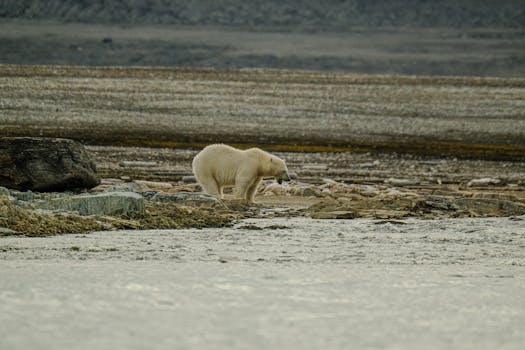
Introduction

The impact of climate change on global ecosystems is a pressing concern that affects every aspect of our planet. As temperatures rise and weather patterns shift, various ecosystems are experiencing unprecedented changes. This article delves into the effects of climate change on different ecosystems, illustrating the interconnectedness of species and the delicate balance of nature.
Effects on Terrestrial Ecosystems

Terrestrial ecosystems, including forests, grasslands, and deserts, are significantly affected by climate change. Rising temperatures lead to altered precipitation patterns, which can cause droughts or floods. For instance, forests are experiencing increased instances of wildfires, pest outbreaks, and diseases, threatening biodiversity. Species such as the American spruce are struggling to adapt.
Moreover, the shifting climate has prompted many species to migrate to cooler areas, disrupting existing ecosystems and leading to competition for resources. The loss of habitat further exacerbates the decline of vulnerable species.
Impact on Aquatic Ecosystems

Aquatic ecosystems, including oceans, rivers, and lakes, are not immune to the effects of climate change. Ocean temperatures have risen, resulting in coral bleaching, which devastates coral reefs and the diverse marine life they support. As ocean acidity increases due to higher CO2 levels, many marine species struggle to survive, leading to declines in fish populations and affecting global fisheries.
Freshwater ecosystems are also feeling the strain, as changing rainfall patterns lead to altered river flows and lake levels. Species such as salmon are facing challenges in their migratory patterns, affecting their reproduction and survival rates.
Impact on Biodiversity

The impact of climate change on biodiversity is profound. As ecosystems shift, many species face extinction if they cannot adapt or migrate. Endangered species are particularly vulnerable, as their limited populations struggle to survive in changing habitats. Habitat fragmentation due to human development exacerbates these challenges, isolating populations and hindering genetic diversity.
Furthermore, invasive species can thrive in altered environments, outcompeting native species for resources and leading to further declines in biodiversity. Conservation efforts are crucial in mitigating these effects and preserving the delicate balance of ecosystems.
Conclusion

In conclusion, the impact of climate change on global ecosystems is significant and far-reaching. From terrestrial to aquatic systems, climate change threatens biodiversity and the health of our planet. Understanding these impacts is crucial for implementing effective conservation strategies and mitigating the effects of climate change. By fostering awareness and promoting sustainable practices, we can help protect our ecosystems for future generations.



